The Ultimate Cash Crops List: Detailed Breakdown of 56 Crops
Are you a budding farmer looking to make easy profits from your land? Planting cash crops could be the solution. Across the world, a variety of cash crops are grown for their economic value and sold for commercial profit. You're also looking to earn on a smaller scale, but how do you know which cash crop works best for your farm?
The highest value crops include apples, bananas, barley, cabbages, cacao, canola, cassava, chilis, coffee, corn, cotton lint, cucumbers, eggplants, garlic, grapes, lettuce, mandarins, mangos, mangosteens, guavas, oats, oil palm fruit, olives, onions, oranges, palm oil, peaches, nectarines, peas, peanut, potatoes, rice, rubber, rye, seed cotton, soybeans, spinach, and 19 others.
Some crops are easy to grow, while others require more skill but earn more profit. Learning and choosing which cash crops can grow well on your farm is crucial. Below is an in-depth look at which region and climate each crop grows well.
Summary
- Sugar cane is the world's largest cash crop producer.
- The most-grown grain in the world is wheat.
- The seven major cash crops are wheat, fruits and vegetables, corn, cotton, sugar cane, soybeans, and oil-producing plants.
- Specialty cash crops you can plant are microgreens, oyster mushrooms, ginseng, lavender, saffron, goji berries, and wasabi.
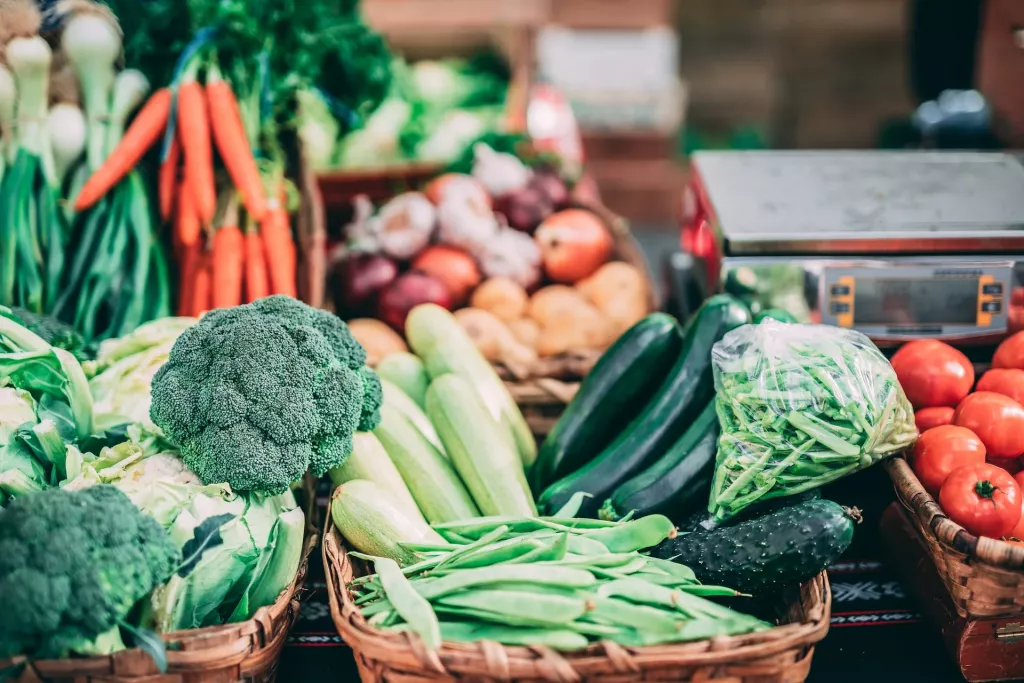
On this page:
The Ultimate Cash Crops List Per World Region
There are several major regions across the world and depending on where you're located, some cash crops can thrive well while other cash crops might not do so well. By learning which cash crops are able to thrive in different climates and geographic regions, you'll be able to plant crops for maximum profit.
| Cash Crop | Asia | Africa | Australia | Europe | North America | South America |
|---|---|---|---|---|---|---|
| Apple | ✓ | ✓ | ✓ | ✓ | ✓ | |
| Banana | ✓ | ✓ | ✓ | ✓ | ✓ | |
| Barley | ✓ | ✓ | ✓ | ✓ | ✓ | |
| Cabbages | ✓ | ✓ | ✓ | ✓ | ✓ | ✓ |
| Cacao | ✓ | ✓ | ✓ | ✓ | ||
| Canola | ✓ | ✓ | ✓ | ✓ | ||
| Cassava | ✓ | ✓ | ✓ | ✓ | ||
| Chili | ✓ | ✓ | ✓ | ✓ | ✓ | ✓ |
| Coffee | ✓ | ✓ | ✓ | ✓ | ||
| Corn | ✓ | ✓ | ✓ | ✓ | ||
| Cotton lint | ✓ | ✓ | ✓ | ✓ | ✓ | |
| Cucumber | ✓ | ✓ | ✓ | ✓ | ✓ | |
| Eggplant | ✓ | ✓ | ✓ | ✓ | ✓ | |
| Garlic | ✓ | ✓ | ✓ | ✓ | ✓ | ✓ |
| Grape | ✓ | ✓ | ✓ | ✓ | ✓ | |
| Lettuce | ✓ | ✓ | ✓ | ✓ | ✓ | |
| Mandarin | ✓ | ✓ | ✓ | ✓ | ✓ | ✓ |
| Mango | ✓ | ✓ | ✓ | ✓ | ||
| Mangosteen | ✓ | ✓ | ✓ | |||
| Guava | ✓ | ✓ | ✓ | ✓ | ✓ | |
| Oat | ✓ | ✓ | ✓ | ✓ | ✓ | |
| Oil Palm Fruit | ✓ | ✓ | ✓ | ✓ | ||
| Olive | ✓ | ✓ | ✓ | ✓ | ✓ | ✓ |
| Onion | ✓ | ✓ | ✓ | ✓ | ✓ | ✓ |
| Orange | ✓ | ✓ | ✓ | ✓ | ✓ | ✓ |
| Palm oil | ✓ | ✓ | ✓ | ✓ | ||
| Peach | ✓ | ✓ | ✓ | ✓ | ✓ | ✓ |
| Nectarine | ✓ | ✓ | ✓ | ✓ | ✓ | ✓ |
| Pea | ✓ | ✓ | ✓ | ✓ | ✓ | ✓ |
| Peanut | ✓ | ✓ | ✓ | ✓ | ✓ | ✓ |
| Potato | ✓ | ✓ | ✓ | ✓ | ✓ | ✓ |
| Rice | ✓ | ✓ | ✓ | ✓ | ✓ | ✓ |
| Rubber | ✓ | ✓ | ✓ | ✓ | ||
| Rye | ✓ | ✓ | ✓ | ✓ | ||
| Seed cotton | ✓ | ✓ | ✓ | ✓ | ✓ | |
| Soybean | ✓ | ✓ | ✓ | ✓ | ✓ | ✓ |
| Spinach | ✓ | ✓ | ✓ | ✓ | ||
| Strawberry | ✓ | ✓ | ✓ | ✓ | ✓ | ✓ |
| Sorghum | ✓ | ✓ | ✓ | ✓ | ✓ | |
| Sugarcane | ✓ | ✓ | ✓ | ✓ | ||
| Sunflowerseed | ✓ | ✓ | ✓ | ✓ | ✓ | |
| Sugar beet | ✓ | ✓ | ✓ | ✓ | ||
| Sweet Potato | ✓ | ✓ | ✓ | ✓ | ✓ | ✓ |
| Tangerine | ✓ | ✓ | ✓ | ✓ | ||
| Tea | ✓ | ✓ | ✓ | ✓ | ✓ | ✓ |
| Tobacco | ✓ | ✓ | ✓ | ✓ | ||
| Tomato | ✓ | ✓ | ✓ | ✓ | ✓ | ✓ |
| Watermelon | ✓ | ✓ | ✓ | ✓ | ✓ | |
| Wheat | ✓ | ✓ | ✓ | ✓ | ||
| Microgreen | ✓ | ✓ | ✓ | ✓ | ✓ | ✓ |
| Oyster mushroom | ✓ | ✓ | ✓ | ✓ | ||
| Ginseng | ✓ | ✓ | ||||
| Lavender | ✓ | ✓ | ✓ | ✓ | ✓ | |
| Saffron | ✓ | ✓ | ✓ | ✓ | ||
| Goji berry | ✓ | ✓ | ✓ | ✓ | ✓ | |
| Wasabi | ✓ |
1. Cash crops in the Asian region
The Asian region is one of the most agriculturally productive regions in the world. Agriculture began 10,000 years ago in the fertile crescent and has since spread to many other parts of Asia.
Rice is the most popular crop grown in Asia, with several other plantation cash crops being grown as well. These crops have helped to feed millions of people throughout Asia and have contributed to its economic growth and development over time.
2. Profitable crops in the African region
Agriculture in Africa has a long history. The first farmers were the Bantu people, who brought their farming methods from the north.
Today, roughly 65% of the African region relies on subsistence farming, which is when one family maintains their own small farm to grow enough crops to feed themselves. Principal grains like corn, wheat, and rice are grown all across Africa. Additionally, cassava, corn, sugar cane, and sweet potatoes are the most commonly produced cash crops.
3. Cash crops in the Australian region
Australia is a diverse and vibrant continent, with a rich history of agricultural development. Agriculture began in Australia as early as 1788 when the first European settlers arrived, bringing with them their agricultural technologies, which had a huge influence on early farming practices.

Some of the highest-producing cash crops in Australia are sugar cane, wheat, barley, canola, grapes, and potatoes.
4. High value crops in the European region
The European region is a diverse and vibrant area that is home to many countries and cultures. It is dominated by livestock products, with France having the largest agricultural surface area. This makes France one of the biggest contributors to Europe’s agricultural sector.
Cash crop production is dominated by wheat, barley, potatoes, rye, grapes, etc.
4. Profitable crops in the North American region
The North American region is a vast area with diverse climates and landscapes. One of the most fertile regions in the region is the San Joaquin Valley, which is located in California. This valley is known for its rich soil and happens to be the most productive agricultural region in the world.
Aside from that, the biggest cash crops in Northern America are corn and soybeans. Growing tropical cash crops is also possible in sunny North American states like Florida and California.
5. High value crops in the South American region
South America is known for its diverse landscape, ranging from the Amazon rainforest to the Andes mountains. They are the largest exporter of soybeans, sugar, coffee, and oranges. But the region is well-known for being the biggest and largest exporter of two important cash crops: coffee and cacao.
Farmlands in Brazil and Argentina enjoy having some of the most fertile and productive soil in the world. In terms of global production, South America is the second largest food producer in the world, with China ranking first.
The Ultimate Cash Crops List Per Climate
Growing cash crops is an important part of the agricultural industry. Different climates are suited to different types of crops, so understanding what type of climate you live in and which cash crops are best for it can help you maximize your yield.
There are four main types of climate: temperate, continental, dry, and tropical. By understanding what type of climate you live in, you can learn which cash crops work best for you.
| Cash Crop | Temperate | Continental | Tropical | Dry |
|---|---|---|---|---|
| Apple | ✓ | ✓ | ||
| Banana | ✓ | |||
| Barley | ✓ | ✓ | ||
| Cabbages | ✓ | ✓ | ✓ | |
| Cacao | ✓ | |||
| Canola | ✓ | ✓ | ||
| Cassava | ✓ | |||
| Chili | ✓ | ✓ | ||
| Coffee | ✓ | |||
| Corn | ✓ | |||
| Cotton lint | ✓ | ✓ | ||
| Cucumber | ✓ | ✓ | ||
| Eggplant | ✓ | ✓ | ||
| Garlic | ✓ | ✓ | ||
| Grape | ✓ | ✓ | ✓ | |
| Lettuce | ✓ | ✓ | ✓ | |
| Mandarin | ✓ | |||
| Mango | ✓ | |||
| Mangosteen | ✓ | |||
| Guava | ✓ | |||
| Oat | ✓ | ✓ | ||
| Oil Palm Fruit | ✓ | |||
| Olive | ✓ | ✓ | ||
| Onion | ✓ | |||
| Orange | ✓ | |||
| Palm oil | ✓ | |||
| Peach | ✓ | ✓ | ||
| Nectarine | ✓ | ✓ | ||
| Pea | ✓ | ✓ | ||
| Peanut | ✓ | ✓ | ||
| Potato | ✓ | ✓ | ||
| Rice | ✓ | |||
| Rubber | ✓ | |||
| Rye | ✓ | |||
| Seed cotton | ✓ | ✓ | ||
| Soybean | ✓ | |||
| Spinach | ✓ | ✓ | ||
| Strawberry | ✓ | ✓ | ||
| Sorghum | ✓ | ✓ | ||
| Sugarcane | ✓ | |||
| Sunflowerseed | ✓ | ✓ | ✓ | |
| Sugar beet | ✓ | ✓ | ||
| Sweet Potato | ✓ | |||
| Tangerine | ✓ | |||
| Tea | ✓ | |||
| Tobacco | ✓ | ✓ | ||
| Tomato | ✓ | ✓ | ✓ | |
| Watermelon | ✓ | ✓ | ||
| Wheat | ✓ | ✓ | ||
| Microgreen | ✓ | ✓ | ||
| Oyster mushroom | ✓ | ✓ | ||
| Ginseng | ✓ | |||
| Lavender | ✓ | ✓ | ✓ | |
| Saffron | ✓ | ✓ | ||
| Goji berry | ✓ | ✓ | ||
| Wasabi | ✓ |
1. Cash crops in temperate climate
Temperate climates are found in the middle latitudes, most especially in Europe, Northern Asia, and Central America. It has moderate rain, warm summers, and cold winters. The environment is ideal for a wide variety of plants and animals to thrive, making it one of the most diverse climates in the world.
2. High value crops in continental climate
Continental climates are characterized by colder winters and long-lasting snow. They also have a shorter growing season due to extreme seasonal changes. This type of climate is found in parts of China, Europe, Iran, Canada, and the United States. These regions typically experience high temperature variations between summer and winter.

3. Cash crop in tropical climate
Tropical climates are found around the equator and are characterized by warm temperatures throughout the year. The weather is usually humid, with rain and sunshine in equal measure. Parts of North America, South America, Africa, Asia, and Australia are home to many exotic species of plants and animals, as well as some of the world's most beautiful beaches.
4. Profitable crops in dry climate
Dry climates are characterized by lots of sunshine, but they also come with a lack of soil moisture and scarce water resources. Africa, Australia, Saudi Arabia, and parts of the southwestern U.S. are examples of dry climates.
This can make it difficult to grow plants and crops, as well as sustain human life. Fortunately, there are ways to manage dry climates in order to make them more livable and productive.
56 Ultimate Cash Crops for Your Farm
Farming is one of the oldest professions in the world and has been a source of income for many families. There are many different types of cash crops that can be grown all over the world, and this ultimate list will provide you with a comprehensive overview of the most profitable cash crops from all over the world.
Whether you're looking to start your own farm or want to know what types of cash crops are available, this ultimate list will give you all the information you need. From grains and vegetables to fruits and nuts, we've covered an overview of the most profitable cash crops around the world.
1. Apple is a profitable fruit crop
Apples can be planted in any hardiness zone; however, they tend to thrive in temperate or continental climates with four seasons rather than tropical or dry climates.
2. Banana is a high value crop
Bananas thrive best when planted in tropical regions where the temperature is around 80 degrees Fahrenheit and on either side of the equator.
3. Barley grains are a cash crop
To grow, barley needs to be planted in a region with a dry and cool climate. It can adapt to high altitudes as well.
4. Cabbage is a profitable crop
Cabbage thrives best in a cool, dry climate. However, prolonged periods of cold temperatures can cause premature flowering.
5. Cacao is a high value bean crop
Cacao requires specific conditions in order to thrive. They mostly thrive in hot and humid regions rich with rainforests.
6. Canola is a cash crop
Canola is a cool-season crop and yields well when grown in moderate climates. The biggest canola-growing region in the U.S. is in the Northern Plains, particularly North Dakota.

7. Cassava is a profitable crop
Growing cassava requires at least 8 months of warm weather, so they thrive well in tropical climates like Africa, South America, and tropical parts of Asia.
8. Chilli is a high value crop
The chilli plant is native to many countries with warm and humid climates. The world's largest producer of chilli is India, which produces 42.24% of the world’s entire chilli supply.
9. Coffee beans are a cash crop
Coffee grows best in warm, tropical climates with rich soil and little to no pests. South America is one of the biggest coffee exporters in the world, particularly Brazil, which produces 2 million metric tons of coffee.
10. Corn is a profitable crop
Corn can be grown almost anywhere around the world. It thrives in warm, sunny weather with moderate rains. The United States is considered the largest producer, consumer, and exporter of corn in the world, planting about 90 million acres of corn each year.
11. Cotton lint is a high value crop
To grow well, cotton needs hot and dry climates. They are native to semi-arid deserts and can be vulnerable to heat stress, especially during humid periods. Currently, India is the world’s largest leading producer of cotton, producing approximately 40% of the world's total.
12. Cucumber is a cash crop
Cucumber plants can be planted in many parts of the world; however, they are unable to tolerate frost and need to be planted in warm, humid climates. The world's largest producer and consumer of cucumbers is China, which accounts for 70% of the world’s total population.
13. Eggplant is a profitable crop
Eggplants are tropical plants, so they need a relatively high temperature, similar to tomatoes. The biggest producer and consumer of eggplant is China, approximately producing 35 million tons.
14. Garlic is a high value crop
Garlic grows best in cold, temperate climates with cold winters, warm springs, and hot, dry summers. China is by far the largest producer of garlic, producing over 75% of the world's tonnage.
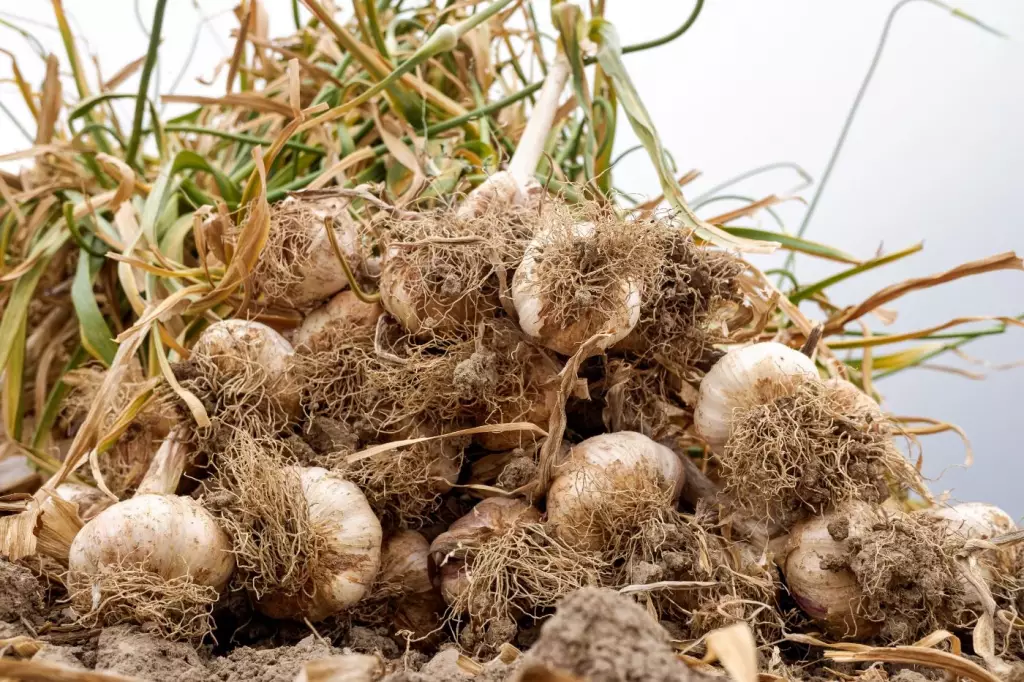
15. Grape fruits are a cash crop
Grapes thrive best in long, warm climates and rainy winters. Warm weather during the growing period allows the grapevine to quickly flower and bear fruit. China has been the largest producer of grapes, with 18.9% of global production.
16. Lettuce is a profitable crop
Lettuce is a cool-weather crop and thrives in cool temperate or continental regions across the world. China is the largest producer of lettuce, producing about 55% of the world’s total production by weight.
17. Mandarin orange is a high value fruit crop
Mandarin oranges are native to tropical parts of Southeast Asia. They grow best in warm and sunny temperatures. The number of global producers of mandarin oranges in China and Spain is the second highest.
18. Mango fruits are a cash crop
Mangos tolerate a wide range of climates; however, they thrive best in warm to temperate climates. India ranks first among the world’s mango-producing countries and produces about 50% of the world’s mango population.
19. Mangosteen is a profitable fruit crop
Mangosteen is a tropical fruit that thrives in warm, humid climates. The biggest producer of mangosteen is Thailand, which is responsible for more than 50% of global mangosteen output.
20. Guava is a high value fruit crop
Guava is successfully grown in dry and humid tropical Asian countries. India is the biggest producer of guava, producing about 21.8 million tons of guava fruits.
21. Oat is a cash crop
Oats can grow quickly in cool, moist climates and tolerate mild frosts. They can be grown in any region. Russia ranks first as the highest oat producer in the world.
22. Oil palm is a profitable fruit crop
Oil plant fruit is a tropical crop that grows best in warm, stable regions with good soil moisture all year round. Indonesia ranks first as the top producer of oil palm fruit in the world.
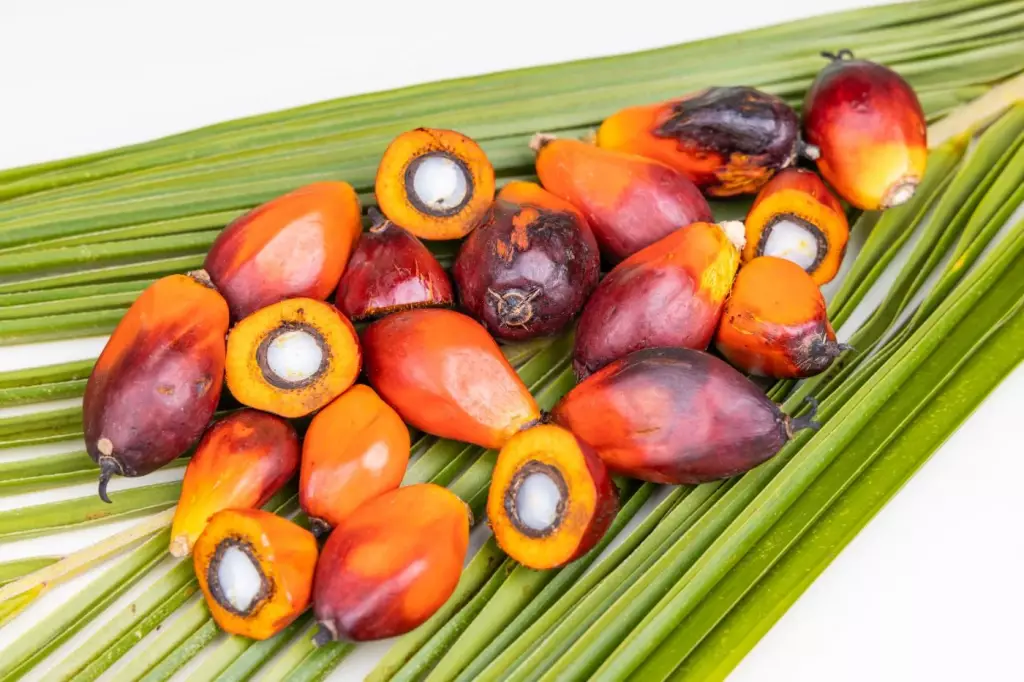
23. Olive is a high value fruit crop
Olives thrive in a Mediterranean-like climate. The plants need a long, hot summer and a cool winter. Spain is the biggest olive producer in the world, producing approximately 9 million metric tons.
24. Onion is a cash crop
Onions are cool-season crops that can be grown in a wide variety of climate conditions, like temperate, tropical, and subtropical climates. China is the largest onion producer in the world, producing around 24 million tons.
25. Orange is a profitable fruit crop
Orange is a native fruit to most tropical and subtropical regions. Brazil ranks first as the global leader in orange production, producing about 16.9 million metric tons.
26. Palm oil is a high value crop
Oil palm crops produce best in rainforest climates. Semi-tropical and tropical environments such as Indonesia and Malaysia are some of the biggest palm oil production nations in the world.
27. Peach fruits are a cash crop
Peach trees grow best in hot summers and cold winters. The United States, particularly California, and China are two of the largest producers of peaches in the world.
28. Nectarine is a profitable fruit crop
Nectarine thrives best in climates with hot summers. China is ranked first in peach production, producing nearly 16 million metric tons.
29. Pea is a high value crop
Peas grow best when they are under the full sun between 55 and 65 degrees Fahrenheit. Russia, China, Canada, Europe, Australia, and the United States are some of the world’s highest pea producers.
30. Peanut is a cash crop
Peanuts are native plants in South America but have been adapted to grow in various other countries. They typically prefer humid, subtropical climates with extended periods of heat. India, the United States, and China are the top three exporters of peanuts.
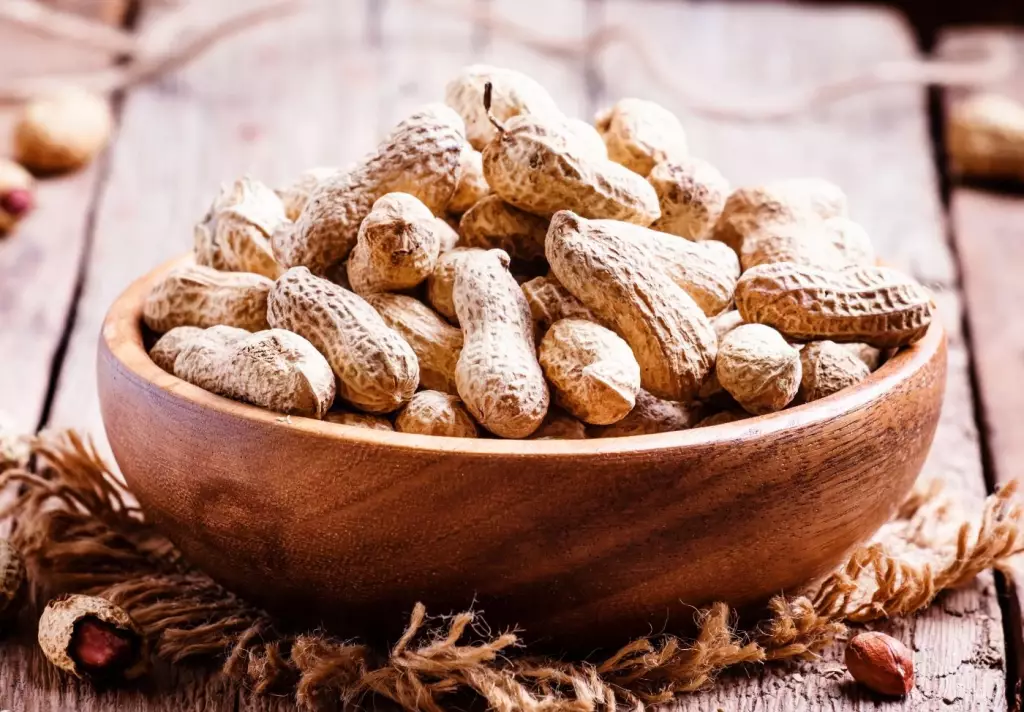
31. Potato is a profitable crop
Potato is a cool-season crop and takes about 80–100 days to reach full maturity. China, India, Russia, and Ukraine are the top global producers of potatoes.
32. Rice is a high value grain crop
Rice crops do well in hot and humid climates, particularly in several Asian countries. China, India, and Indonesia are the top three leading producers of rice in the world.
33. Rubber tree sap is a cash crop
Rubber trees need moist and humid climates with heavy rainfall to thrive. It’s commonly found in the equatorial climate at temperatures above 77 degrees Fahrenheit. Thailand is considered the number one producer of rubber, producing 4.83 million metric tons of natural rubber in the world.
34. Rye is a profitable grain crop
Rye can be grown in many parts of the world but grows best in cool temperate zones. Many countries in Europe, like Germany, Poland, Russia, and Denmark, are top producers of rye grain.
35. Seed cotton is a high value crop
Seed cotton thrives well in hot and dry conditions. The top two cotton producers are India and China, which together contribute about 45–50% of the world’s cotton production.
36. Soybean is a cash crop
Soybean plants can be grown in both cold-temperate and tropical regions. Brazil, the United States, and Argentina are the top 3 soybean producing countries.
37. Spinach is a profitable crop
Spinach is a cool-weather crop and prefers a cool climate. China and the United States are two of the world’s top spinach producers.
38. Strawberry is a high value fruit crop
Strawberry plants do well in temperate regions with temperatures between 50 degrees Fahrenheit and 80 degrees Fahrenheit. The top strawberry producer in the world is China, producing 3.2 million metric tons.
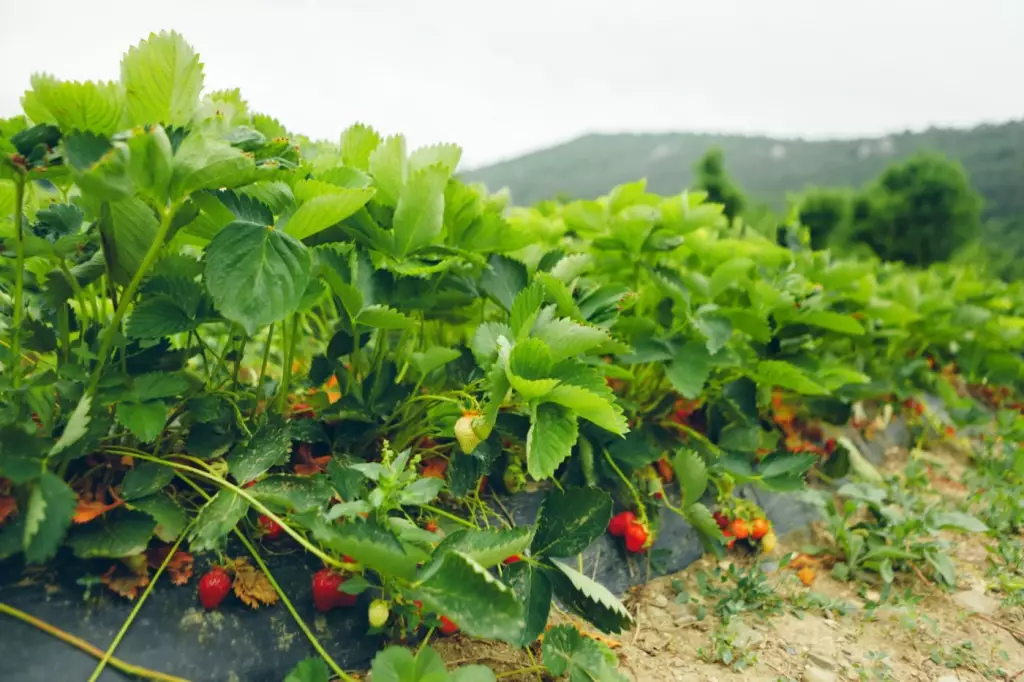
39. Sorghum grains are a cash crop
Sorghum grows well in warm summers, with daytime temperatures reaching 90 degrees Fahrenheit. Asia, Africa, and countries in North America are the top producers of sorghum.
40. Sugarcane is a profitable crop
Sugarcane plants are native to tropical climates and grow well in hot and humid regions of South America and in tropical parts of Asia. Brazil is the largest producer of sugarcane.
41. Sunflower is a high value seed crop
Sunflower plants can thrive in temperatures between 70 degrees Fahrenheit and 78 degrees Fahrenheit. It can tolerate high heat but requires moist soil to survive. Russia has the highest sunflower seed production, producing around 16.5 million metric tons of sunflower seeds.
42. Sugar beet is a cash crop
Sugar beets are hardy crops that can adapt to a variety of soils. They grow best when daytime temperatures are between 60 and 80 degrees Fahrenheit and nighttime temperatures are between 40 and 50 degrees Fahrenheit. The biggest producer of sugar beets is the EU, which makes up 20% of the world’s total sugar production.
43. Sweet potato is a profitable crop
Sweet potato plants thrive in warm to hot climates. It can be damaged if the temperature falls below 50 degrees Fahrenheit. China is the largest sweet potato producer, supplying about 65% of the world’s global supply of sweet potatoes.
44. Tangerine is a high value fruit crop
Tangerines prefer to grow in warm southern climates with moist and well-drained soils. Brazil is the leading citrus producer in the world, followed by China, Spain, and Turkey.
45. Tea leaves are a cash crop
Tea plants grow best in regions with warm, humid climates with rainfall measuring at least 100 centimeters a year. India is the largest producer of tea in the world, followed by China, Kenya, and Argentina.
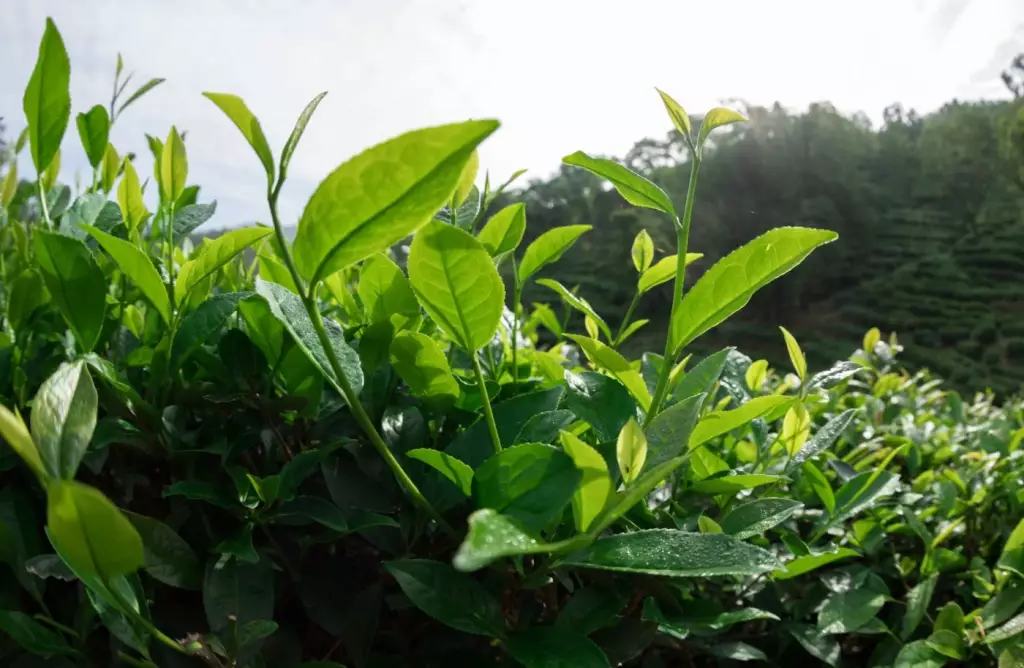
46. Tobacco is a profitable crop
Tobacco plants can be planted in a wide range of climates but need to avoid frosty temperatures for 90 to 120 days from transplanting to the last harvest of leaves. The leading tobacco producers are China, India, Brazil, and the United States.
47. Tomato is a high value crop
Tomatoes need lots of direct sunlight and won’t do well in cold weather or extreme heat. The top producers of tomatoes are India, China, the United States, and Indonesia.
48. Watermelon fruits are a cash crop
Watermelons are warm-season crops that grow best in temperatures between 70 and 85 degrees Fahrenheit. The top watermelon producer in the world is China, followed by Turkey, Iran, the United States, and Egypt.
49. Wheat is a profitable grain crop
Wheat plants are traditionally cold-climate crops, and most of them are grown in the northern hemisphere. Russia, China, Germany, France, Canada, and the United States are some of the biggest producers of wheat in the world.
50. Microgreen is a high value crop
Microgreens can be grown in many parts of the world and thrive well in warm temperatures of around 70 degrees Fahrenheit. The United States is the biggest producer of microgreens in the world.
51. Oyster mushroom is a cash crop
Oyster mushrooms grow best in moderate temperatures from 70 to 85 degrees Fahrenheit. China is the biggest producer of oyster mushrooms, followed by Japan and the United States.
52. Ginseng is a profitable crop
Ginseng is a root crop that thrives well in cool, damp environments. China and South Korea are the two largest producers of ginseng, followed by the United States and Canada.
53. Lavender is a high value flower crop
Lavender plants prefer warm and moderately dry climates with mild winters and sunny summers. Europe, particularly Bulgaria and France, are the world’s top lavender producers, with China coming in second.

54. Saffron spice is a cash crop
Saffron thrives well in dry Mediterranean climates and needs an optimum period of 12 hours of direct sunlight. Iran is the world's largest producer of saffron, supplying around 76% of the world’s saffron.
55. Goji berries is a profitable crop
Goji berry plants flourish well in dry weather and are native to China and Tibet. However, it has been adapted to grow in other regions across the world. China is the main producer and supplier of goji berries.
56. Wasabi is a high value crop
Wasabi is best grown in cool, shady conditions. It requires a climate temperature between 46 degrees Fahrenheit and 70 degrees Fahrenheit and high humidity in summer. Japan is the top wasabi producer in the world. However, wasabi has also been cultivated to grow in China, Korea, Taiwan, New Zealand, and the United States.
Sources:
- https://en.wikipedia.org/wiki/List_of_most_valuable_crops_and_livestock_products
- https://en.wikipedia.org/wiki/Cash_crop
- https://www.ers.usda.gov/topics/crops/
- https://scijinks.gov/climate-zones/
- https://ourworldindata.org/agricultural-production
- https://www.visualcapitalist.com/cp/what-are-the-most-produced-cash-crops-in-africa/



